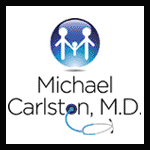Immunizations have been all over the news lately, even entering the political debates. A couple of the discoveries have confirmed clinical impressions, including some I shared with you before.
As I mentioned in an earlier newsletter, the current whooping cough (pertusis) epidemic has been remarkable to me because, while I have had patients with whooping cough almost every year for the last 25 years, I have not had a single patient with whopping cough during what is supposedly a revolutionary epidemic. Why is that?
Data now show that at least 80% of the children developing whooping cough in the current epidemic have been immunized as officially recommended. A brand new study of this outbreak, conducted in Marin, found that immunity is lasting only 3 years after completing the full 5 shot DTaP immunization series. Older, previously vaccinated children are now the most vulnerable to the disease. One public health response has been a call to vaccinate an even higher percentage of the population, because those who are not vaccinated must be spreading the disease, overwhelming the vaccination.
I would think that the correct conclusion would instead be to reconsider the relationship between the vaccine and the disease. Maybe the disease is evolving to outrun the vaccine? Might there even be MORE vulnerability to whooping cough among those immunized, at least after a few years, than the rest of us? Clearly the vaccine, even five shots worth, is not doing the job.
I have never been a fan of the chicken pox vaccine, and research data makes me feel like even harsher criticism is deserved. Research now indicates that immunity from the vaccine disappears after only 5 -7 years. That is a triple “ouch”, the first for the shot, the second because the shot did not protect for very long, and you can read the third in the next paragraph.
Adding to the uncertainty, there are data indicating that lowering the rate of chicken pox has increased the rate of shingles suffered by adults. Projections are that as high as many as 50% of adults will develop shingles because their immune systems will not be not “reminded” about the virus, due to lack of virus exposures in daily life. Formerly the incidence was believed to be under 5%.
Of course, most of us would choose to risk our health in favor of our children’s health. However the small to moderate risk of serious problems with each could make this rationale debatable. Chicken pox is usually a mild illness, and many times parents of children who have gotten chicken pox have expressed their surprise to me, as what they had read of the disease had made them quite afraid. That said, as many as 5,000 children a year were hospitalized in the USA with complications before the vaccine became available. Then again, in the same time period, we averaged 100,000 pediatric hospitalizations annually for diarrhea. Postherpetic neuralgia, a complication which occurs in about 13% of shingles cases, typically causes pain for months and sometimes years. Unfortunately, at this point I think there is more justification for shingles vaccine in our aging population as a consequence of vaccinating children.
It seems to me that, even without questioning immunizations for other reasons, there is rising cause for skepticism and critical reappraisal. The bottom line is that these immunizations are, at best. not as advertised. They are not working very well and it is unwarranted to simply blame those who choose to limit vaccinations for failure of the vaccinations. Many physicians were surprised by a recent study which found that almost 3/4 of parents had concerns about immunizations. I am surprised also, but by the minority who did not have questions.
